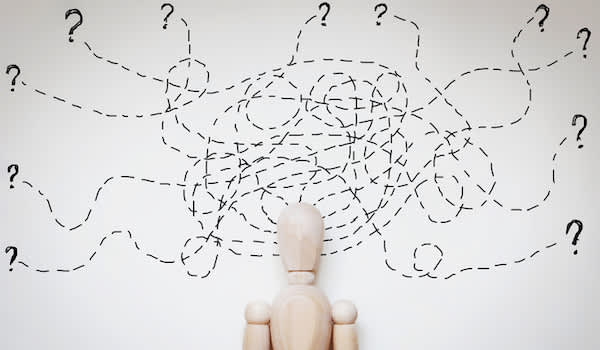Stress and anxiety. Where do they come from and how to combat them?
Stress and anxiety. Where do they come from and how to combat them?
Both professionally and personally, it is clear that stress and with it, anxiety, in modern times have become an endemic scourge that people living in modern society have to deal with.
Too many stimuli, tasks, urgent matters and responsibilities create stress and, poorly managed and maintained over time, in the long term can become chronic and negatively affect our health.
Experts on the subject agree that, in this matter, prevention is better than cure. Be that as it may, having stress at specific moments can be something relatively normal and acceptable, but if it happens to you all the time it becomes a sign that something is wrong, a problem that we must combat.
Stress is …
But let’s start at the beginning: what is stress?
Stress is a state of mental fatigue caused by a higher than normal demand. It is the reaction of the person before a challenge or excessive demand, and that creates a feeling of tension.
At specific times, stress can be a good thing, allowing you to respond effectively to an unusual challenge or demand (for example, avoiding danger, playing certain sports that require reflexes, or performing an urgent task). This type of stress is called point stress and it is something positive that all people have experienced at some point in their lives, and that helps them successfully cope with important situations in their lives.

In contrast to the above, a very different situation occurs when this stress is repeated for a long time (for example, due to personal or financial problems, too much stress, responsibility or workload, impossible tasks to carry out, etc.) . In this case, specific stress becomes chronic stress and can end up damaging your health, causing involuntary changes in behavior, fatigue, concentration problems, anxiety, depression, insomnia, weight changes, among other physical health problems and mental.
Closely related to the above is anxiety, which is a feeling of fear, fear or restlessness. This can be caused by stress. As with stress, when anxiety occurs at a specific moment (the most common example is before taking an important exam) it can be positive by giving us strength to help us successfully overcome the challenges we have at a given moment .
But as with stress, too much anxiety can become chronic, leading to anxiety disorders, where it no longer has a specific cause and is maintained over time. The most common is generalized anxiety disorder, in which people who suffer from it worry excessively and continuously over time about common problems, without being able to do anything to control these feelings. Other cases are those of panic attacks or phobias.
It is not easy to predict when a person will suffer these situations, and many times they occur without the person being aware of it. Suffering from these disorders or not depends a lot on the personality of each one and the situations to which they are subjected. In these cases, you should go to a professional to diagnose these disorders and help us find solutions.

Tips to combat stress and anxiety
Reviewing the literature, these are some tips that experts give to avoid (or reduce) stress and anxiety:
– Identify the causes of stress: It seems obvious, but having a knowledge of the causes of problems is the first step to combat them. For this, perhaps some of these articles and methodologies can help you: Evaluation tools.
In an ideal world, where we could find the causes of all problems and tackle them at their roots, of course much of all this would be solved. Despite our regret, sometimes the causes are not so obvious, or they cannot be easily solved, or they are a series of circumstances that, together with our way of being, create a difficult problem to solve. In another article I wrote in the past, I share some ideas about this: 5 tips to be happier by changing your way of thinking (and not your life).
– Avoid sedentary lifestyle: Experts point out that sedentary lifestyle can aggravate stress and lead to anxiety disorders. Sitting for too long, in front of the computer or television has a negative influence on us, and is related to the appearance of sleep and health problems.
– Exercising: In line with the previous point, moderate exercise, as well as walks, nature excursions, etc., reduce stress levels.
– Perform relaxation techniques: At this point, it is worth talking about certain techniques that have become very fashionable lately, and that goes hand in hand with trying to achieve an open and positive attitude in our life, something that for some people is easier than for others. The best known of them are, for example, meditation, deep breathing, yoga, tai chi or mindfulness, or hydrotherapy, among others.
– Having a healthy diet: Another point that experts always agree on is food. A healthy diet improves our physical and psychological health, so it is another point to take into account.
– Rest and social life: It is important to reserve time for rest where we can disconnect for a few hours from our worries. Socialization and social life is also key, and dedicating time to our personal relationships, with our partner, family and friends.
– Planning and organizing your life: Finally, a point that perhaps should have gone first. Having a clear mind about what we want to do with our life and what our long-term goals and objectives are is essential to be able to face the problems and tasks of day to day without getting lost with things that, after all, perhaps are not so important if we see them in the long term.
Some applications for smartphones that can help you
There are free applications for your mobile phone (Android, etc.) that can help you identify, track, and combat stress and other similar problems.
With no intention of advertising, we show you a couple of them below:
For example, we have Youper, which includes tests to detect and monitor your health over time with specific questionnaires on symptoms related to generalized anxiety disorder, depression, post-traumatic stress, or social anxiety, among others. It also allows you to know your personality, keep track of your daily mood, identify activities that affect you positively or negatively, do mindfulness and meditation to relax, give you advice, etc.
Other applications that are simpler but that can also help you organize your ideas and identify which activities affect your mood are diaries and mood monitors, such as Dailyo, where you can record your mood each day along with the activities you do, and later view the statistics for months or years. Very useful to identify your good and bad moments!
Many other similar applications offer similar utilities, so we encourage you to find and try the one that best suits what you are looking for.


